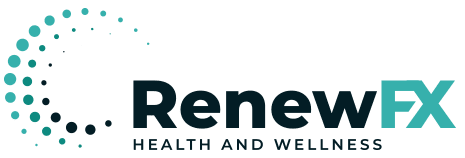Why more people are eliminating dairy… Food for thought.
Each year, the average American wolfs down 36 pounds of cheese and 24 pounds of ice cream or frozen dairy products. You wash all that down with 200 pounds of milk and cream, according to the USDA. It’s safe to say many of us are very fond of dairy. Why more people are eliminating dairy? So you may be surprised to know that consumption of all dairy products has been steadily declining since 2005, with 22% of Americans reporting they’ve decreased their intake, according to a survey by the American Academy of Nutrition and Dietetics.
The reasons people give dairy the slip are as varied as the number of milk substitutes. Weight loss, clearer skin, disease prevention, and increased energy are just a few of the benefits people associate with a no-dairy diet. But what do you really stand to gain—or lose—when you ditch dairy?
You’ll put cracks in your foundation.
Up until age 30, your body builds bone at a faster pace than it breaks it down. After 30, your body chews up bone faster than it’s being built. The best way to fortify your frame? Calcium. And dairy is one of the best sources of the stuff because your body absorbs calcium from dairy better than it does from any other food, says Rebecca Blake, RD, director of clinical nutrition at New York’s Mount Sinai Beth Israel Health.
Cut out dairy and you could set the stage for osteoporosis and fractures.
That said, if you’re committed to removing moo juice from your menu, switch to other skeleton-strengthening calcium sources such as leafy greens (collard greens, kale, spinach, broccoli, broccoli rabe), tofu, and sardines. Also, pop a daily calcium plus vitamin D supplement, Blake says. “Be sure to take it with food because the acid in your stomach aids absorption,” she adds.
You’ll want to wear less makeup.
No more spackling on the concealer: Milk may be an acne trigger, so going dairy-free could also help you become zit-free. According to research from Dartmouth Medical School, milk contains testosterone-like hormones, which may stimulate oil glands in the skin and contribute to breakouts.
You’ll slash your risk of cancer . . .
. . . and so will your spouse if he ditches dairy, too. Swedish researchers found drinking more than one glass of milk per day may double your risk of ovarian cancer, while a Harvard study found men who consumed more than two daily dairy servings had a 34% increased risk of developing prostate cancer, compared with those who consumed little or no dairy.
You’ll want to add ProBiotics to your daily supplements.
When you take dairy away, you may unknowingly remove something else from your diet: probiotics. These healthy bacteria—commonly found in yogurt and soft cheeses—have been linked with an array of good-for-you benefits, including keeping you “regular.” A study in the American Journal of Clinical Nutrition found probiotics improved “gut transit time” by 12 hours, increased the number of weekly bowel movements by 1.5, and softened stool, making it easier to pass. The good news: probiotics hide out in a variety of non-dairy foods including sauerkraut, pickles, and tempeh.
You’ll feel bloated.
Blame it on the soy. “When people cut out a food group, like dairy, they tend to seek out substitutes that provide a similar taste or texture,” Blake says. “Dairy products are often replaced with soy-based alternatives.” Think soy cheese, soy milk, and soy butter. The problem is, soy can be difficult to digest—especially if you rapidly increase your intake, Blake adds. That’s because soy contains sugar molecules called oligosaccharides that your body doesn’t digest well, which means they set up shop in your GI tract and cause bloating and gas.
You’ll have to renew your life insurance policy.
For each daily glass of milk you drink, your risk of death rises by 15%, according to a study in the BMJ. Scary stuff! Researchers found that women who downed three or more glasses of milk per day were nearly twice as likely to die over the next two decades than those who drank less than one glass daily. Researchers are pointing their finger at galactose, a simple sugar in milk that’s been shown to induce oxidative stress and low-grade inflammation, which set the stage for disease. Interestingly, fermented milk products—including yogurt and cheese—contain little or no galactose. Women who consumed the highest amounts of these foods actually had a decreased risk of death, the study also showed.
Other Dairy-Free Benefits
Clear Skin
Whatever the reason, an increasing number of dermatologists are now recommending the dairy-free diet as a first step in treating acne.
Preventing Milk Allergy and Sensitivity Reactions
Milk allergy is real. Dairy repeatedly ranks high in prevalence on the Top 8 food allergen list in the U.S. and Top 11 in Canada. Note that milk allergy can appear at any time in life.
Healthy Digestion
After weaning, humans no longer “need” the ability to digest their mother’s milk, so they naturally begin losing lactase, the enzyme that helps to digest lactose in dairy milk, thus we become Lactose intolerant over time. Dairy has also been labeled as a key trigger in IBS (irritable bowel syndrome) and various other digestive conditions.
Helping or Resolving Medical Mysteries
Whether backed by research or thousands of personal success stories, many people are squashing daily headaches, migraines, rashes, stuffy sinuses, chronic infections, arthritis pain, and even narcolepsy when they cut out all dairy foods.
Weight Loss
For those who are milk allergic and have had issues with low body weight, a milk-free diet can actually help them to absorb nutrients and potentially gain healthy weight. But for the rest of the population, weight loss is a real possibility with the dairy-free transition. It isn’t uncommon for me to see posts of “I went dairy-free, with no other changes in my diet or lifestyle, and 15 pounds simply melted away!”
Cancer Prevention
Numerous research studies have shown a direct correlation between dairy intake and several hormone-related cancers. In fact, strong ties have been identified between milk consumption and both ovarian and prostate cancers.
Stronger Bones
Wait. Did I say stronger bones without dairy? Believe it or not, there is a large body of science that directly combats the promoted connection between dairy milk and bone health. According to the landmark Harvard study of approximately 78,000 female nurses, women who consumed greater amounts of calcium from dairy foods had a significantly increased risk of hip fractures, while no increase in fracture risk was observed for the same levels of calcium intake from non-dairy sources.




